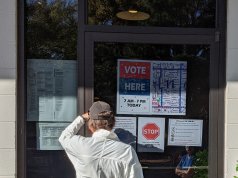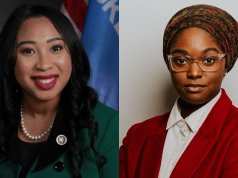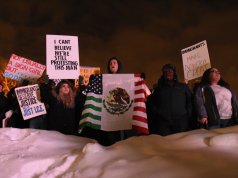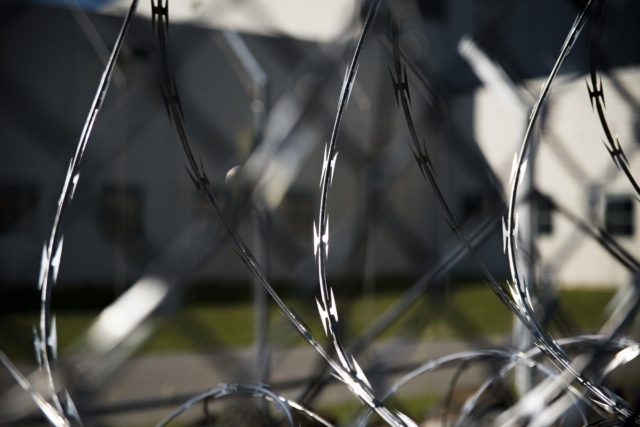

By Kate Peifer and Rose Velazquez
News21
LEXINGTON, Ky. — Republican and Democratic politicians across the country are deeply divided over restoring the right to vote for felons, a political fracture that affects millions of convicted criminals.
In Iowa and Kentucky, Democratic governors issued executive orders to restore voting rights to many felons only to have them rescinded by Republican governors who succeeded them.
Democratic legislators in 29 states proposed more than 270 bills over the past six years that would have made it easier for some felons to vote, but very few passed, especially in legislatures controlled by Republicans, News21 found in an analysis of state legislative measures nationwide.
Debate and decisions about restoring voting rights to felons often follow partisan lines because felons, particularly African-Americans, are viewed as more likely to vote Democratic than Republican, voting rights experts told News21. Nationwide, 1 in 13 black voters is disenfranchised because of a felony conviction as opposed to 1 in 56 non-black voters, according to The Sentencing Project, a nonprofit organization that works on criminal justice-sentencing policies and racial disparities.
“Democrats are probably going to like it (felon voting) because they are going to expect a draw of votes, and Republicans tend to object,” said Lynn M. Sanders, a University of Virginia professor and expert in American government.
Others agreed.
“This issue is very politicized because some Republicans associate the expanding franchise with more Democratic votes,” said Nazgol Ghandnoosh, a research analyst at The Sentencing Project. The organization estimates nearly 6 million felons are disenfranchised nationwide.
Rights extended, rights rescinded
News21’s analysis of data from the National Conference of State Legislators found 316 bills nationwide that would have allowed more access to voting for felons. Republican-controlled legislatures blocked 137, 101 failed to pass in states with divided control, and 65 were unsuccessful in Democratic-controlled legislatures. Maryland’s Republican governor successfully vetoed one bill.
“Most of these people are not currently incarcerated,” said Ghandnoosh. “They’re living among us in their communities, but because of restrictions and laws that prevent people from being able to vote, until they’ve gone through a number of hurdles, they are not able to engage and be a part of our democracy.”
Maine and Vermont are the only states where felons never lose the right to vote, even in prison.
“You don’t lose your citizenship when you get incarcerated,” said Foster Bates, an inmate at the Maine State Prison and president-elect of its NAACP chapter. “You shouldn’t be limited in what you can vote for and who you can vote for.”
Bates, who was convicted of murder, said more than 1,200 inmates are registered to vote in Maine.
“To assume these people don’t understand the process is a cry for justice,” he said. “Voting in here is everything to us.”
Florida, Kentucky, Iowa and Virginia impose the strictest laws that can permanently disenfranchise felons, regardless of the offenses. Virginia’s Democratic Gov. Terry McAuliffe issued a blanketed restoration of voting rights to felons earlier this year, but the Virginia Supreme Court struck it down. McAuliffe was disappointed with the decision because he said it was made for political reasons.
The remaining states vary widely in voting rights for felons, from automatic restoration after incarceration to a two-year waiting period.
‘It gives them a voice’
Richard Walker, founder of Bridging the Gap in Virginia, a nonprofit organization that helps the formerly incarcerated re-enter society, spent 14 months in prison for possession of cocaine and writing bad checks to purchase and resell stamps. Since his release in 2005, he’s been traveling across Virginia to convince felons their votes matter.
“It gives them a voice. It gives them the opportunity to say ‘I am a citizen because I do vote,’” Walker said. “Without that, folk have the feeling that they’re marginalized and that they’re not a part of society. That’s a gut-wrenching thought to say that I have no voice and I can’t vote.”
Even before his sweeping executive order, McAuliffe said he had restored voting rights to 18,000 felons by granting individual pardons.
“You take the last seven governors over their four-year terms, and I did more (restored more rights) in my two years. So this is not new,” he said.
McAuliffe told News21 at the Democratic National Convention that his actions were for moral reasons, not political reasons.
“I’m committed and passionate,” he said. “It isn’t about Election Day — it’s about letting these folks come back in and vote and feel good about themselves.”
McAuliffe issued his executive order April 22 restoring voting rights to more than 200,000 felons who had completed the terms of their sentences, including probation and parole.
Less than a month later, major players in the state’s Republican-controlled General Assembly — including House Speaker William J. Howell and Senate Majority Leader Thomas K. Norment Jr. — challenged McAuliffe’s order with a lawsuit, arguing that the governor violated the state constitution.
The Virginia Supreme Court agreed. In a 4-3 decision in July, Chief Justice Donald W. Lemons said the court “respectfully disagreed” with McAuliffe’s belief that the governor holds the power to make blanket restorations. Howell and Norment could not be reached for comment.
‘Some people change’
Since April, about 13,000 felons registered to vote — just 6 percent of those who were eligible before the recent court ruling, according to a news release McAuliffe issued after the ruling. In his statement, he said he plans to “expeditiously sign nearly 13,000 individual orders to restore the fundamental rights of the citizens who have had their rights restored and registered to vote.”
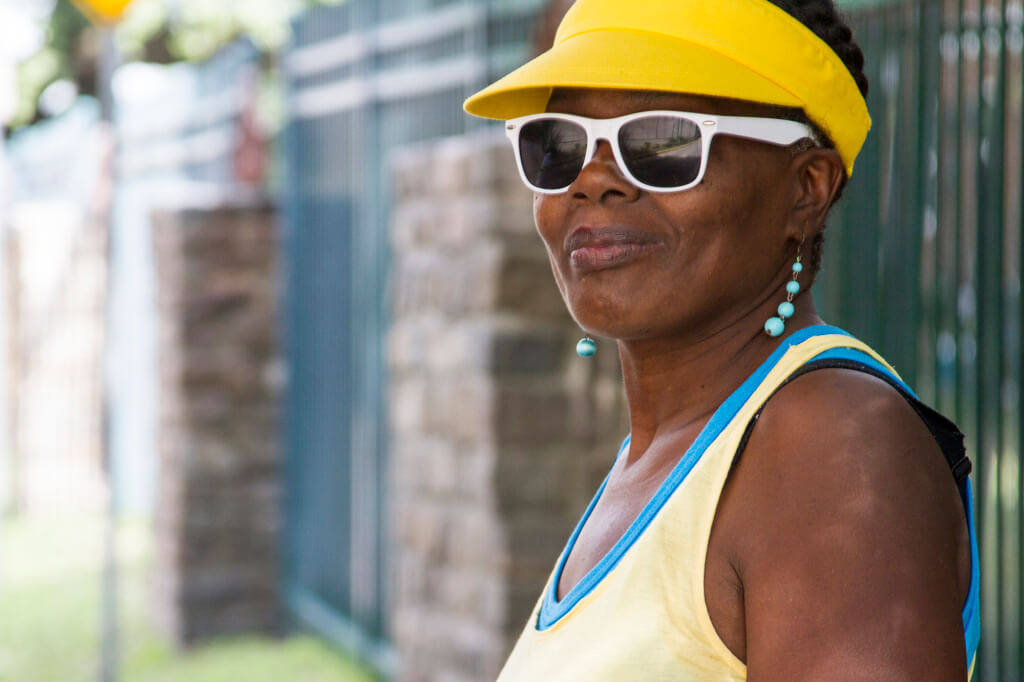
Michelle Fisher of Norfolk, Virginia, had waited 30 years to have her rights restored.
“Some people change,” she said. “They don’t keep going (down) the same road, and it’s an awesome thing that he (McAuliffe) did. It’s going to help a lot of people.”
However, felons like Fisher who received their rights under McAuliffe’s order will be removed for now from the voter registrar list because of the court’s decision.
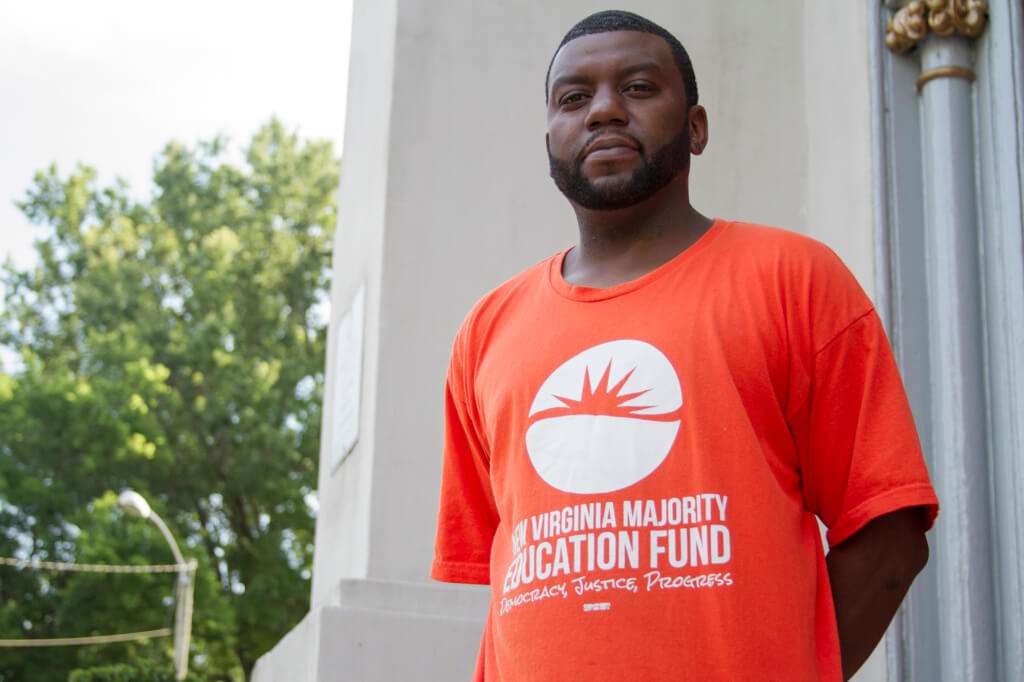
“Everyone is disappointed. They thought they were giving them a chance to vote and be a part of society,” said Brandon Polly, an employee at New Virginia Majority, a grassroots advocacy organization. “It’s like a slap in the face all over again.”
While Roger Clegg, president and general counsel of the Center for Equal Opportunity, doesn’t support permanent disenfranchisement, he does think felons should have to show “they’ve turned over a new leaf.”
He said Iowa, Florida and Kentucky — all states that require applications reviewed individually — are good models for rights restoration.
“If you’re not willing to follow the law, you can’t make the law for everyone else,” Clegg said.












